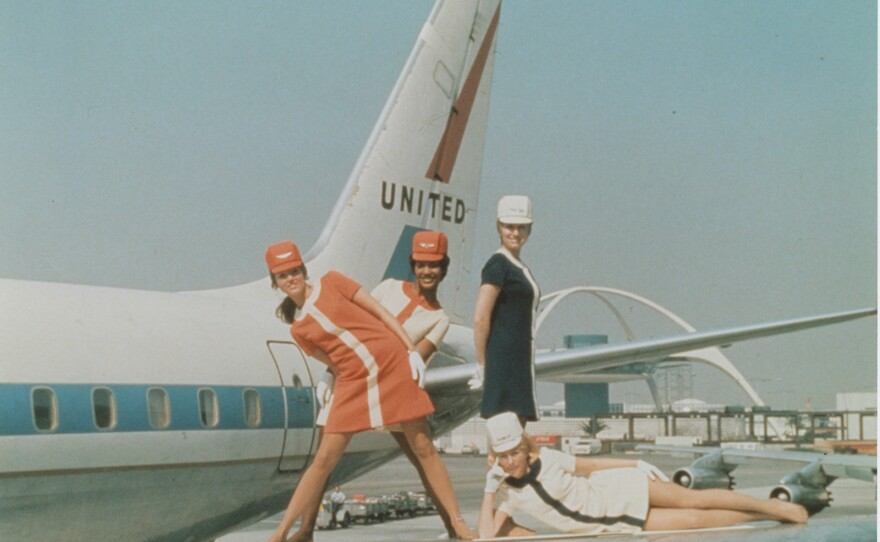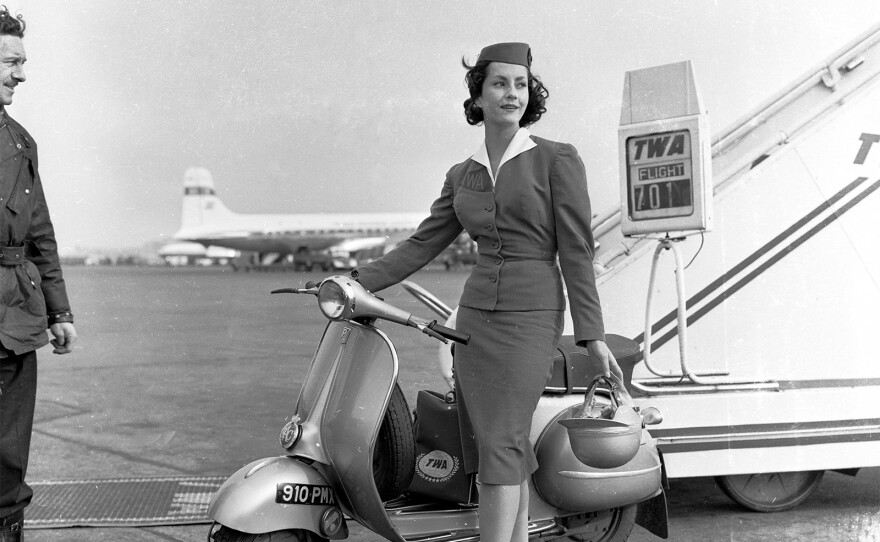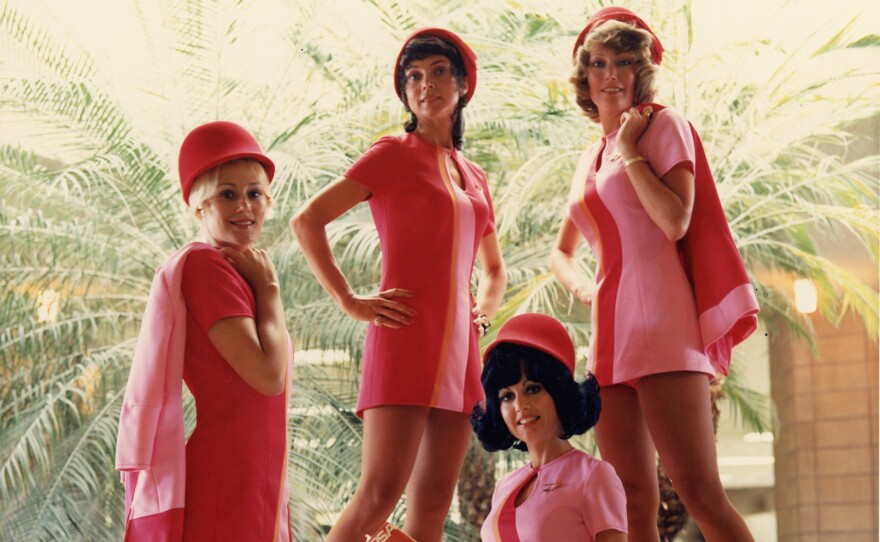Tuesday, March 18, 2025 at 9 p.m. on KPBS TV / Stream now with KPBS Passport!
AMERICAN EXPERIENCE “Fly With Me” tells the story of the pioneering young women who became flight attendants at a time when single women were unable to order a drink, eat alone in a restaurant, own a credit card or get a prescription for birth control. Becoming a “stewardess,” as they were called, offered unheard-of opportunities for travel, glamour, adventure, and independence. Although often maligned as feminist sellouts, these women were on the frontlines of the battle to assert gender equality and transform the workplace. Featuring firsthand accounts, personal stories and a rich archival record, the film tells the lively and important but neglected history of the women who changed the world while flying it.
A cabin attendant was considered a man’s job at the dawn of the commercial airline industry. But by the 1950s, as planes became safer and more reliable, stewardesses became a critical selling point for airlines fighting for market share in a heavily regulated industry. At a time when single, middle-class women were expected to marry and raise a family, becoming a stewardess offered remarkable opportunities. The job required glamour, intelligence, independence and grit.

But there were downsides. The airlines required every stewardess to be young, single and attractive, which, in 1950s America, meant white. Pat Banks, who failed to land even one interview after successfully completing a stewardess training program in 1956, filed a complaint with the New York State Commission on Discrimination. After four years, she won and was hired by Capital Airlines, making her one of the first Black flight attendants in the U.S. The airlines didn’t discriminate solely on the basis of race.

Stewardesses could not be married and were forced to retire as early as age 32. Weight and height guidelines were strictly enforced; women could not wear eyeglasses and had to share hotel rooms, unlike their male counterparts. Barbara “Dusty” Roads decided to fight back. She joined her labor union, lobbied Congress and strategically courted media attention. But without a federal law prohibiting workplace discrimination, it was an uphill battle.

Then on July 2, 1964, President Lyndon Johnson signed the Civil Rights Act. Designed to address race-based inequalities in American life, the law also included a clause offering worker protections against gender discrimination. On the day the Equal Employment Opportunity Commission, set up to enforce the new anti-discrimination laws, opened, Dusty Roads and her best friend Jean Montague filed a complaint against the airlines’ age limit. Within a year of the EEOC’s opening, nearly 100 cases citing gender discrimination had been submitted by flight attendants.

But the commission made few rulings, fueling concerns that gender complaints were not being taken seriously by the mostly male EEOC leadership. Frustrated in part by the commission’s inaction and a society-wide lack of progress in the fight for equal rights, activists formed the National Organization for Women. The organization demonstrated, filed lawsuits and pressured the EEOC to act.
Just as stewardesses were gaining momentum in their fight for workplace rights, airlines transformed their ad campaigns. Once marketed as glamorous hostesses in the sky, now they were being presented as sex objects. At the same time, as the Vietnam War intensified, stewardesses often found themselves on the frontlines, flying in and out of Saigon to shuttle troops back and forth. “You're being marketed, basically, as a Barbie doll, and yet doing more and more complex work,” historian Phil Tiemeyer explains. “There's a fundamental incompatibility between these two things.”

In 1972, a group of flight attendants founded Stewardesses for Women’s Rights. Journalist and trailblazing feminist Gloria Steinem actively promoted their cause, recognizing the vital role these high-profile working women could play in the burgeoning Women’s Movement. When stewardess Mary Pat Laffey fought to become the first female purser at Northwest Airlines, the company cut her salary, paying her less than her male counterparts. Laffey filed a class action lawsuit in 1970. By the time the case went to trial, 70% of Northwest Airlines stewardesses had become part of the lawsuit.
RELATED: The Golden Age of Flight Wasn’t So Golden for Flight Attendants
RELATED: ‘A revolution waiting to happen’: The Surprising Alliance between Stewardesses and Gloria Steinem
In 1974, the judge ruled in favor of Laffey and the stewardesses, awarding them a large payout for back salary with interest and reimbursement for the difference in room rent — stewardesses had been required to double up in hotel rooms while stewards had single rooms. The decision also struck down rules against wearing glasses and weight limitations, which targeted only women. Northwest appealed. It took another 11 years before the U.S. Supreme Court upheld the ruling in favor of the women, who were awarded $60 million in the case. “Women were finally allowed to have the same benefits that the men had,” explains Laffey. “If you were capable, you could have a man's job.”

“The women of 'Fly With Me' broke barriers by becoming flight attendants in the first place, but what is so remarkable is that they were also on the vanguard of fighting for workplace equity,” said Director Sarah Colt. “By exploring this history, we show the power of individuals to make change and how gender, race and class are critically intertwined.”
Watch On Your Schedule: This episode is available to stream now with KPBS Passport, a member benefit that unlocks exclusive shows and extra content on the PBS app.
Credits: Directed by Sarah Colt and Helen Dobrowski. Written by Sarah Colt. Produced by Helen Dobrowski. Edited by Charnelle “CHA” Quallis. AMERICAN EXPERIENCE is a production of GBH Boston. Executive Producer Cameo George.





